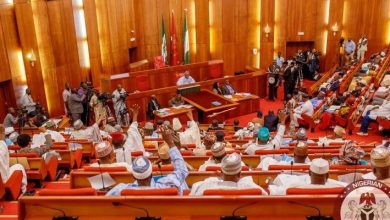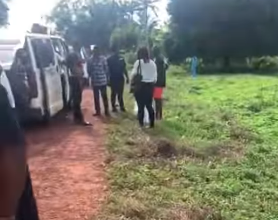Rivers State Sole Administrator Presents ₦1.48 Trillion Budget for 2025
Rivers State Sole Administrator Ibok-Ete Ibas has presented a ₦1.48 trillion 2025 budget.
The proposal comes amid emergency rule, with key allocations for education, health, pensions, and economic empowerment.
The Sole Administrator of Rivers State, Mr. Ibok-Ete Ibas, has officially presented the state’s proposed 2025 budget, amounting to ₦1.48 trillion. His presentation was made on Tuesday before the House of Representatives, outlining a fiscal roadmap designed to rebuild critical infrastructure, enhance public services, and promote inclusive growth across the state, which remains under a declared state of emergency.
While delivering the budget proposal, Mr. Ibas did not shy away from addressing the hurdles his administration has encountered. He expressed disappointment over the refusal of certain suspended state officials to cooperate, saying their actions negatively affected the comprehensive preparation of the budget.
The ₦1.48 trillion proposal includes a projected revenue of ₦1.4 trillion. The spending plan, according to Ibas, was carefully developed in alignment with the Rivers State Development Plan (2017–2027), and has been transmitted to the National Assembly following presidential approval. The Supreme Court is expected to give a ruling that will guide the legal standing of the appropriation process for the 2025 fiscal year.
In his introductory remarks, Mr. Ibas extended appreciation to the committee for its commitment and sense of duty. “We in Rivers State are most grateful for your commitment. Despite your busy schedules, you have shown steadfast dedication in discharging your constitutional responsibilities,” he said.
However, he was quick to raise concerns over the conduct of some former officials. “Unfortunately, certain state officials withheld essential information that would have helped create a more accurate record of the spending that took place in the first quarter of the year before the suspension of the previous administration,” Ibas explained.
Despite these setbacks, he noted that the budget framework was adjusted to ensure legitimacy, transparency, and alignment with national financial standards.
Mr. Ibas highlighted several major components of the proposed spending plan. Among them are:
- ₦324.5 billion set aside for infrastructure and transportation development
- ₦55 billion for the expansion and relocation of Rivers State University Teaching Hospital
- ₦50 billion for the upgrade of zonal hospitals across the state
- ₦38.85 billion dedicated to shoreline protection and erosion management
- ₦30 billion to develop zonal secondary schools
- ₦5.75 billion for the rehabilitation of primary schools
- ₦2.5 billion for programs promoting women’s economic empowerment
- ₦3 billion for the establishment of youth resource centers
- ₦20 billion to recapitalize the Rivers State Microfinance Bank, with the aim of supporting small businesses
- ₦117 billion earmarked for pensions, gratuities, and welfare packages for workers and retirees
He expressed hope that every Rivers resident with a viable business idea would find support under this financial plan. “God willing, every Rivers citizen with a great idea that is well-conceived and clearly outlined will be able to access funding to bring it to life, regardless of tribe, background, or political affiliation,” he assured.
In response, the Chairman of the House Committee on Rivers State Oversight, Hon. Julius Ihonvbere, commended Ibas for delivering a detailed and ambitious budget plan. He emphasized the committee’s willingness to work closely with the administrator to bring peace and progress back to the state.
“I want to commend your presentation and reassure you that we are committed to working with you to restore stability, development, and prosperity in Rivers State,” Ihonvbere stated. “The state has always shown what is possible when there is good leadership.”
He also pointed out that critical aspects of the budget, especially provisions for women’s empowerment and pensions, are vital to social well-being. He described these allocations as timely and responsive to the needs of the people.
The committee is expected to begin a series of budget defense sessions in the coming weeks to examine the proposal in detail. Lawmakers will assess each component to ensure accountability, effective execution, and fiscal responsibility within the emergency administration framework currently guiding the state’s governance.



